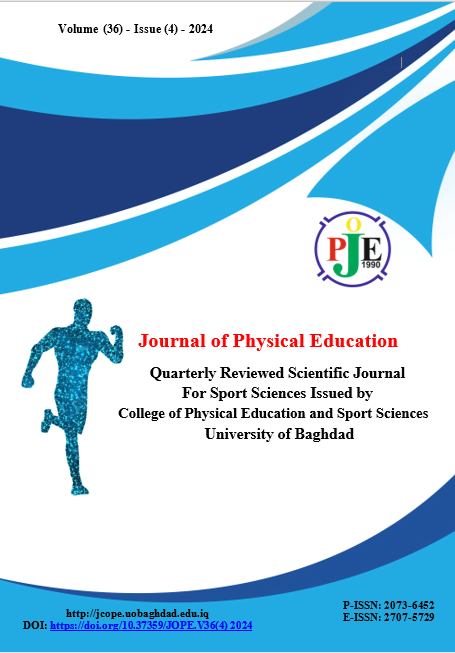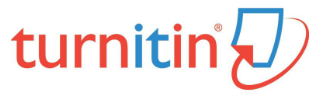The Effect of Competitive Exercises Using Physical Performance Tracking Technology (GPS Playertek Plus and Polar H9) on Developing Speed in Iraqi Premier League Football Players
DOI:
https://doi.org/10.37359/JOPE.V36(4)2024.2225Keywords:
Speed, fitness, Polar H9, Playertek PlusAbstract
Football is one of the most important team sports, practiced by men and women, young and old, across various age groups. The physical development in this sport can be attributed to athletic training and modern technology, which have contributed significantly to advancing the sports field in general. Outstanding performance in football requires precise and quick physical abilities, closely tied to the competitive nature of the game. Speed is fundamental in football, making the use of technologies such as GPS tracking devices and heart rate monitors essential in both training and matches. This study aims to develop the speed of Al-Talaba SC players in Baghdad using a scientifically-based approach to improve their performance. The importance of the study lies in introducing competitive exercises with the help of global tracking technologies to enhance performance during training and develop training strategies based on scientific data. The research highlights a physical weakness in speed among the players, which calls for the use of the GPS Playertek Plus tracking device to improve speed. The scientific approach helps in analyzing data, designing competitive training sessions, and achieving optimal performance in matches. The study indicates that competitive exercises based on GPS tracking devices positively impact the development of player speed, reinforcing the importance of using these technologies in sports training, such as GPS tracking devices, to enhance player speed and design appropriate exercises for each player.
References
Al-Jamili Atheer Mohammad and Al-Alwani Ahmed Abdul Amir, Modern Sports Training Science: Methods, Approaches, and Applications, Dar Al-Wifaq for Publishing and Distribution, 2023.
Al-Lami Abdullah Hussein, Football (Learning and Training – Plans and Planning), Baghdad: Matba'a Iraq, 2012.
Basal Abdul Mahdi, Selected Concepts and Topics in Sports Training and Auxiliary Sciences, Al-Adala for Printing and Publishing, 2nd Edition, 2008, p. 42.
Bastowisi Ahmed, Foundations of Sports Training, Dar Al-Fikr Al-Arabi, 1999.
Carling C. [et al.], The Role of Motion Analysis in Elite Soccer: Contemporary Performance Measurement Techniques and Work Rate Data, Sport Medicine, 2008, Vol. 38(10), 839-862.
CatapultSport, Volume Metrics, [Report], 2022, Retrieved from: https://support.catapultsports.com/hc/en-us/articles/360000648316-Volume-Metrics.
Davis R.M. and Lee, C.P., GPS Technology and Sprint Speed Development in Adolescent Soccer Players, Sports Medicine and Physical Fitness Journal, 2022.
Fadel Kamel Makhzur and Amer, Recent Trends in Endurance, Strength, Stretching, and Recovery Training, Al-Nur Office, 2008.
Haitham Jawad, The Effect of Compound Exercises in Developing Movement Speed, Basic Skills, and Tactical Performance for Football Players in Training Centers, Youth Category, University of Baghdad, Faculty of Physical Education and Sports Science, 2019.
Haitham Jawad, The Effect of Individual and Team Competitive Exercises on Developing Special Endurance, Speed, and Tactical Performance for Football Players Aged 15 in Baghdad Governorate, University of Baghdad, Faculty of Physical Education and Sports Science, 2015, p. 88.
Ibrahim Mohammad Reda and Ali Mehdi Kazem, Foundations of Sports Training for Different Age Groups, Dar Diaa for Printing, 2013, p. 39.
Ibrahim Mufti, Sports Training for Adolescents and the Successful Coach, Dar Al-Kitab Al-Hadith, 2009.
John R and Michael J Smith, Impact of GPS Technology on Sprinting Performance in Youth Soccer Players, Journal of Sports Science and Medicine, 2021.
Johnson [et al.], The Effectiveness of GPS-Based Training Interventions on Speed and Endurance in Young Soccer Players, European Journal of Sport Science, 2020.
M.T. Scott and G. Kelly V., The Validity and Reliability of Global Positioning Systems in Team Sports: A Brief Review, Journal of Strength and Conditioning Research, 2016, Vol. 30(5), 1470-1490.
Maab Fathi and O. Ali, A Review of TCP Congestion Control Using Artificial Intelligence in 4G and 5G Networks, American Academic Scientific Research Journal for Engineering, Technology, and Sciences, 2022, Vol. 88.
Makhzur Fadel Kamel and Faek Amer, Recent Trends in Endurance, Strength, Stretching, and Recovery Training, Al-Nur Office, 2008.
Makhzur Fadel Kamel, Faek Amer, and Amer Faek Shaghati, Recent Trends in Endurance, Strength, Stretching, and Recovery Training, Al-Nur Office, 2008.
Marcia K. Anderson, Susan J. Hall, and Malissa Martin, Foundations of Athletic Training: Prevention, Assessment, and Management, Lippincott Williams and Wilkins, 2004.
Qassem Jamil and Khamees Ahmed, Encyclopedia of Handball, Al-Safa Encyclopedia for Publications, 2011.
Rampinini E. [et al.], Accuracy of GPS Devices for Measuring High-Intensity Running in Field-based Team Sports, International Journal of Sports Medicine, 2015, Vol. 36(1), 49-53.
Saad Hamed Al-Jamili, Field Training in Strength and Flexibility, Dar Dijla, 2014, p. 18.
Thamer Mohsen and Muwafaq Majid Mulla, Developmental Exercises in Football, Dar Al-Fikr for Printing, Publishing, and Distribution, 1999.
Thompson [et al.], Enhancing Sprint Performance in Youth Football: The Role of GPS Monitoring, Journal of Strength and Conditioning Research, 2019.
Turki Adel and Jabar Salam Sahib, Football: Teaching and Training, Basra: Al-Nakhil Printing, 2016.
Downloads
Published
Issue
Section
License
Copyright (c) 2024 Journal of Physical Education

This work is licensed under a Creative Commons Attribution-NonCommercial 4.0 International License.






 The Journal of Physical Education (JOPE) applies a Creative Commons Attribution 4.0 International license (CC BY 4.0), which lets others distribute, remix, tweak, and build upon your work, even commercially, as long as they credit you for the original creation. For more information, click the link :
The Journal of Physical Education (JOPE) applies a Creative Commons Attribution 4.0 International license (CC BY 4.0), which lets others distribute, remix, tweak, and build upon your work, even commercially, as long as they credit you for the original creation. For more information, click the link : 